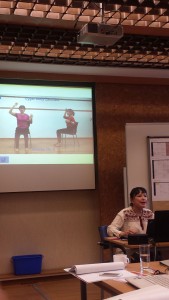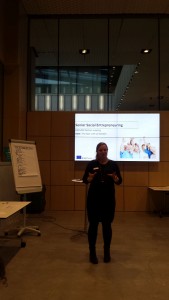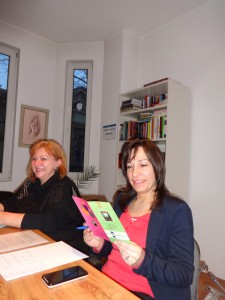 All project partners had meetings with the practical partners to describe the handbook and to recommend and introduce methods as well as the structure of the handbook. Practice partners evaluated the methods and the handbook as very good and useful tools and approaches.They modified and adapted some of the tested methods for their individual use and gave feedback and recommendations. They also made suggestions to the structure of the handbook that most of the tested methods support the recognition of soft skills and competences and can be used for coaching processes.
All project partners had meetings with the practical partners to describe the handbook and to recommend and introduce methods as well as the structure of the handbook. Practice partners evaluated the methods and the handbook as very good and useful tools and approaches.They modified and adapted some of the tested methods for their individual use and gave feedback and recommendations. They also made suggestions to the structure of the handbook that most of the tested methods support the recognition of soft skills and competences and can be used for coaching processes.
Work on it! Third meeting in Seville
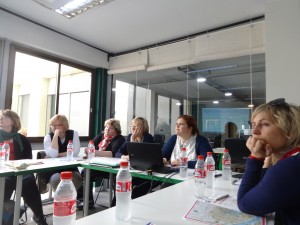 We met for the third time in Seville and exchanged experience about the testing period done in each partner’s country. We have several practical partners in different work fields (teacher, social worker as well as those who are working in a youth club). The practice partners have been very interested in the handbook and the methods.
We met for the third time in Seville and exchanged experience about the testing period done in each partner’s country. We have several practical partners in different work fields (teacher, social worker as well as those who are working in a youth club). The practice partners have been very interested in the handbook and the methods.
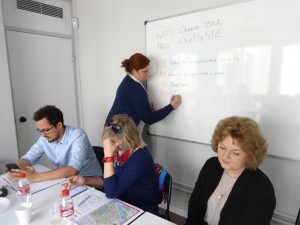 All of us had meetings with the practical partners to describe the handbook and to recommend and introduce methods as well as the structure of the handbook. Some of the project partners have already tested methods and more tested methods are planned. Practice partners evaluated the methods and the handbook as very good and useful tools and approaches. They modified and adapted some of the tested methods for their individual use and gave feedback and recommendations. They also made suggestions to the structure of the handbook that most of the tested methods are short term methods that support the recognition of soft skills and competences and can be used for coaching processes. Continue reading
All of us had meetings with the practical partners to describe the handbook and to recommend and introduce methods as well as the structure of the handbook. Some of the project partners have already tested methods and more tested methods are planned. Practice partners evaluated the methods and the handbook as very good and useful tools and approaches. They modified and adapted some of the tested methods for their individual use and gave feedback and recommendations. They also made suggestions to the structure of the handbook that most of the tested methods are short term methods that support the recognition of soft skills and competences and can be used for coaching processes. Continue reading
Leaflet WHOLE
Last project meeting Diversities@Work
The two years project Diverisities @ Work is near its end and the last meeting of the consortium was held in October in Madrid. The two meeting days were a time in which the project partners reported the results of work done last months – meetings with representatives of business, organizations form sectors education and health, which were shown and presented the training materials developed within the project. The last corrections of the handbook, the fife theme guides on LGBT+ belonging to it and the functionality of the e-learning platform Diverisities@Work http://www.d-work.eu/ were discussed by the participants in the event.
Reporting progress on project WHOLE – consortium meeting in Linz, Austria
 With the time progresses and the activities under the project WHOLE also develope. The project consortium met in October 2016 in Linz, Austria, to take account of the progress of assigned tasks in the spring. Host of the two-day meeting was Berufsförderungsinstitut Oberösterreich (BFI OÖ).
With the time progresses and the activities under the project WHOLE also develope. The project consortium met in October 2016 in Linz, Austria, to take account of the progress of assigned tasks in the spring. Host of the two-day meeting was Berufsförderungsinstitut Oberösterreich (BFI OÖ).
A final report was prepared, based on the conducted questionnaires in recent months with elderly people using formal/ informal care and with formal / informal carers. It presented advise needs on healthy nutrition and appropriate physical activity, reported in the questionnaires.
Senior Social Entrepreneuring – project kick off meeting
 The current changes in the demographic structure of Europe and the reduction of the working age population lead to the conclusion that the active involvement of older people in pre-retirement or retirement age in social and economic life of the community on different ways becomes urgent.
The current changes in the demographic structure of Europe and the reduction of the working age population lead to the conclusion that the active involvement of older people in pre-retirement or retirement age in social and economic life of the community on different ways becomes urgent.
The idea of project Social Entrepreneuring – BUILDING CAPACITY AMONG SENIORS TO SERVE AS SOCIAL CHANGE BROKERS IN COMMUNITIES is initiating of exchange of experiences among people aged 55+, motivating them to participate actively in social and economic life and creation of entrepreneurial skills among them.
Work on it! 2ND NEWSLETTER
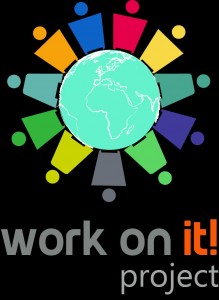 From our cooperation with local practice partners we received altogether 43 methods, tools and good practice approaches. 36 of them were included into a first draft of our “Handbook of good practices”.
From our cooperation with local practice partners we received altogether 43 methods, tools and good practice approaches. 36 of them were included into a first draft of our “Handbook of good practices”.
The collected methods, tools and good practice approaches were systemised, arranged and relate to key competences they support.
The first draft was introduced to the project partners at the project meeting in Sofia in May 2016. Composition and structure of the single methods and the handbook in its entirety were discussed by the project consortium. Furthermore the partners have been asked to give additional information to several aspects of the methods. Continue reading
ELIST Transnational Training for Multipliers in Portugal
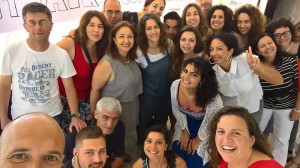 Transnational Training III within “Elist – European Learning Innovation for Sustainable Training” context is a 5 days Training Course for Multipliers (TCM), was hold in the week 20th – 2th of June in Costa da Caparica, Portugal. 35 participants, from 6 countries – Austria, Bulgaria, Greece, Italy, Portugal and Spain had the opportunity to improve their attitudes/behaviors, knowledge, and skills as Multipliers. These participants were recognized at EU level as the ELIST4M team.
Transnational Training III within “Elist – European Learning Innovation for Sustainable Training” context is a 5 days Training Course for Multipliers (TCM), was hold in the week 20th – 2th of June in Costa da Caparica, Portugal. 35 participants, from 6 countries – Austria, Bulgaria, Greece, Italy, Portugal and Spain had the opportunity to improve their attitudes/behaviors, knowledge, and skills as Multipliers. These participants were recognized at EU level as the ELIST4M team.
The ELIST4M team member will be capable to motivate potential users of the project ELIST results in order to have a positive impact on local development in a sustainable way, considering the environment, the economy and the social context of their communities. Continue reading
ELIST last Transnational Meeting 23 – 24 June 2016, Lisbon
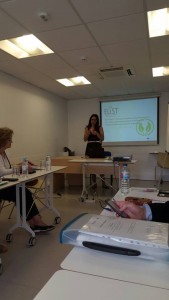 The final transnational project meeting took place in Lisbon, Portugal, hosted by our Portuguese partner Aldeia Lusofona.
The final transnational project meeting took place in Lisbon, Portugal, hosted by our Portuguese partner Aldeia Lusofona.
Partners made presentation on WP2 Revision/harmonization, WP7‐ Multiplier Events in Spain and Portugal update/examination, key findings and potential for exploitation of results and WP6‐IO3 Update/examination, key deliverables and related deadlines for reporting and project closure.
Check on Monitoring and Evaluation of the project activities was also presented, including QA final report.
Methods, tools and good practice approaches to support young people’s occupational orientation
![]() The Work on it! project consortium met for the second time on the 18th and 19th of May in Sofia.
The Work on it! project consortium met for the second time on the 18th and 19th of May in Sofia.
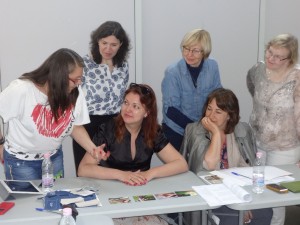 We selected methods, tools and good practice approaches that will facilitate persons working with young people to motivate and support young people’s occupational orientation together with our practice partners. They will be compiled in a Handbook of good practice and tested by the practice partners. During the meeting each partner introduced one method example.
We selected methods, tools and good practice approaches that will facilitate persons working with young people to motivate and support young people’s occupational orientation together with our practice partners. They will be compiled in a Handbook of good practice and tested by the practice partners. During the meeting each partner introduced one method example.


